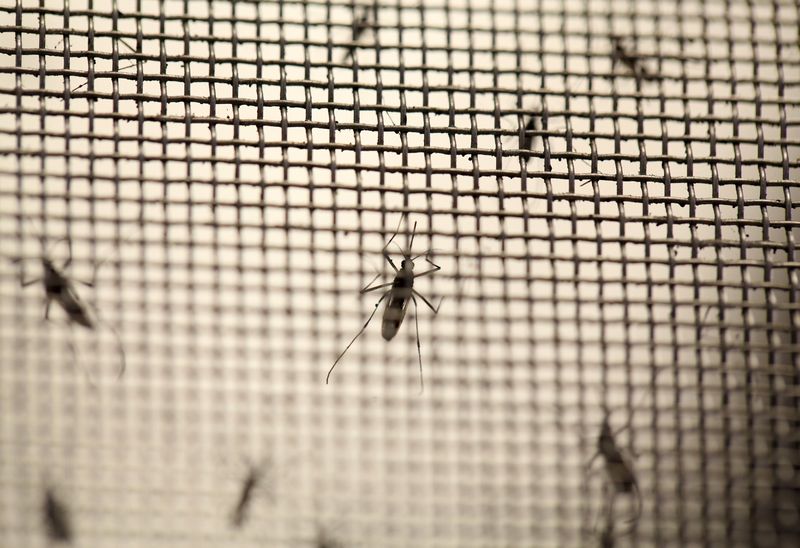By Julie Steenhuysen
CHICAGO (Reuters) - U.S. scientists have identified a genetically modified strain of mice that develop Zika, an important tool needed for testing vaccines and medicines to treat the virus that is rapidly spreading across the Americas and the Caribbean.
Early tests on the mice show the virus growing in the testes, offering clues about how a virus typically spread by mosquito bites can be transmitted sexually.
"We are going to do experiments to see if we can produce sexual transmission" in these mice, said Scott Weaver, a virologist at the University of Texas Medical Branch in Galveston who worked on the study published on Monday in the American Journal of Tropical Medicine and Hygiene.
Weaver said the Zika mouse model will provide a critical tool to allow companies and scientists to test vaccines and antiviral drugs against Zika, which has been linked with thousands of cases of microcephaly, a rare birth defect marked by unusually small head size and possible developmental problems.
Zika has not been proven to cause microcephaly, but strong evidence connecting Zika infections with microcephaly cases in Brazil prompted the World Health Organization to declare Zika a global health emergency on Feb. 1.
Normally, creating this kind of mouse model would take several months. But the urgency of the Zika outbreak called for rapid response, and the team put together the results in just three weeks, said Shannan Rossi, a UTMB virologist who led the study.
Normally, mice do not become sick from a Zika infection. The team tested the virus on several genetically altered mice that had weakened immune systems. The young mice quickly succumbed to the virus, becoming lethargic, losing weight and typically dying six days later.
Testing on the mice showed virus particles in many major organs, including high concentrations in the spleen, brain and testes.
While Weaver says there are limits to what mouse models can tell about human infections, they may at least provide some early clues that could be followed up in non-human primates, a more costly animal model that is a better predictor of human disease.
"The mouse will mainly be used to do the very earliest testing of vaccines or drugs where the mechanism of disease doesn't have to be a perfect model to what happens in humans," Weaver said.

Brazil has confirmed more than 900 microcephaly cases and considers most related to Zika infections in the mothers. It is investigating nearly 4,300 additional suspected cases of microcephaly.